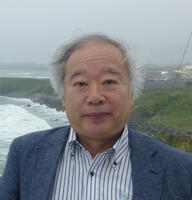|
Affiliation |
School of Medicine, Department of Pathology (1) |
|
Job title |
Professor |
|
Homepage URL |
|
|
Profile |
1. ストレス応答とは 原核生物から真核生物にいたるまで、すべての生物は外界から受ける環境ストレスや感染ストレスに対する防御機構と適応機構を持っており、それらはストレス応答と呼ばれています。ヒトも生理機能の一部としてストレス応答を持っていますが、その機能障害はがん、神経変性疾患、免疫疾患、動脈硬化・代謝疾患、精神疾患などのさまざまな病気やエイジング(老化)と関連しています。また、ストレス応答を制御することによって、病気を治療したり、予防したりすることもできることがわかってきました。 2. ストレス応答の分子機構 ストレス応答はセンサー分子とエフェクター分子から構成され、すべての細胞が備えています。たとえば、温熱ストレスのセンサー分子はHeat shock factor (HSF)と呼ばれる遺伝子転写調節因子で、これが活性化するとエフェクター分子である熱ショックタンパク質(Heat shock protein, HSP)の発現を促進します。HSPの機能は分子シャペロンと呼ばれ、細胞内タンパク質の高次構造や分解を制御しています。そのほかに、センサー分子として酸化ストレスセンサーNrf2, Foxo3a、低酸素ストレスセンサーHIF-1、小胞体ストレスセンサーPERK, ATF6, IRE1など、エフェクター分子として酸化還元反応を制御するOxidoreductase, 細胞膜輸送タンパク質ABC Transporter、細胞死抑制分子IAP familyなど、ストレス応答を支えている多くの分子が知られています。 3. ストレス応答とがん がん細胞は正常細胞と比較して高いストレス耐性を持っていることが知られ、がんの悪性形質の1つとなっています。私たちは、がんの女王バチに相当するがん幹細胞(Cancer stem cell)が恒常的に高レベルのストレス応答分子群を発現しており、より高度のストレス耐性を獲得していることを見出しています。また、がん細胞にストレス刺激を加えてストレス応答を惹起すると、働きバチが女王バチに変身する現象も見出しており、これらの分子機構を解明することによって、近い将来、女王バチを撲滅する治療法や再発予防法につながるものと期待しています。実際、ストレス応答分子の発現を抑制するとがん幹細胞の造腫瘍性が失われることから、ストレス応答分子を標的とした分子標的治療も開発中です。 4. ストレス応答と神経変性疾患 脊髄小脳変性症やアルツハイマー病のような難治性神経変性疾患の原因として、神経毒性をもつ変性タンパク質の蓄積がわかっています。たとえば、アルツハイマー病におけるAmyloid betaタンパク質の蓄積、脊髄小脳変性症におけるポリグルタミンタンパク質の蓄積、クロイツフェルトヤコブ病におけるプリオンタンパク質の蓄積などがあります。これら病原タンパク質の蓄積は神経細胞のストレス応答の減弱とタンパク質高次構造の変化、すなわちタンパク質の変性が原因にあることがわかりつつあり、分子シャペロンHSPによる神経変性疾患の治療と予防が期待されています。脳神経細胞のストレス応答を高めることができれば、認知症の予防にも効果があると期待されます。 5. ストレス応答と生体防御 細胞がウイルスや細菌に感染すると、ストレス応答が惹起されます。ストレス応答によって発現が亢進したHSPの一部は細胞外へ放出され、樹状細胞のような免疫司令塔に働きかけ、自然免疫(単球・NK細胞の活性化、インターフェロン産生)と獲得免疫(Tリンパ球・Bリンパ球の活性化、抗体産生)を発動します。このように、細胞のストレス応答は生体防御機構のセンサーおよびエフェクターとしても機能しています。変温動物は感染すると気温・水温の高い場所へ移動します。また、ヒトを含めて恒温動物は感染によって発熱しますが、これらは温熱ストレス応答によって生体防御機構を活性化する反応と考えられます。NHK ”ためしてガッテン” (2011年5月放送)において紹介しましたが、ヒトのリンパ球を39℃に加温すると、標的細胞を細胞障害する活性が高まります。感染だけでなく、痛風のような非感染性炎症(無菌性炎症)においても、細胞のストレス応答がDanger signalのセンサーおよびエフェクターとして働いています。これらの分子機構を免疫治療に応用することで、より効果的ながんワクチンを実用化する研究も行っています。 6. ストレス応答とアンチエイジング 過度なストレスがヒトのエイジング(老化)を促進することはよく知られていますが、エイジングの病態生理として細胞および生体のストレス応答の低下が挙げられます。ストレスタンパク質の発現低下は変性タンパク質の増加をもたらし、生体防御反応を低下させ、細胞死を増加させます。最近では脳神経細胞のストレス応答の低下が抑うつ状態のような精神機能とも関係しているらしいことがわかりつつあります。宇宙環境においてヒトの加齢現象が促進することが知られていますが、これも環境ストレスの増大と細胞ストレス応答の減弱が原因であると考えられます。したがって、ストレス応答を高めることができれば、認知症や動脈硬化などの多くの老化関連疾患から予防できる可能性があります。 ストレス病理学を起点として、ヒトの疾患制御と予防医学へ橋渡しし、世界中の人々が健康で明るく生き生きと生活できる社会に貢献することが私の夢です。 |
TORIGOE Toshihiko
|
|
|
Education 【 display / non-display 】
-
1978-1984
National Defense Medical College Medical Science
Research Experience 【 display / non-display 】
-
1984.03-1997.11
Japan Air Self Defense Force Flight Surgeon
-
2015.10-Now
Sapporo Medical University Graduate School of Medicine Professor
-
2015.10-Now
Sapporo Medical University School of Medicine Medical Sciences Professor
-
2004.10-2015.10
Sapporo Medical University Graduate School of Medicine Associate Professor
-
1997.11-2015.10
Sapporo Medical University School of Medicine Medical Sciences Assistant Professor and Associate Professor
Professional Memberships 【 display / non-display 】
-
日本宇宙生物学会
-
Cell Stress Society International
-
The Japanese Society of Pathology
-
The Japanese Cancer Association
-
The Japanese Society for Immunology
Research Areas 【 display / non-display 】
-
Life sciences Tumor biology Cancer Stem Cell
-
Life sciences Tumor diagnostics and therapeutics Immunotherapy, Vaccine, T-cell Therapy
-
Life sciences Cell biology Cellular Stress Response, Stress Protein, Heat Shock Protein
-
Life sciences Experimental pathology Cancer Stem Cell
-
Life sciences Human pathology Immunopathology
Affiliation 【 display / non-display 】
-
Sapporo Medical University Graduate School of Medicine Professor
Research Interests 【 display / non-display 】
-
Cancer Immunity, Immunotherapy, Vaccine, T-cell Therapy
-
Autoimmunity, Autoantibody, Inflammation
-
Cellular Stress Response, Heat Shock Protein, Molecular Chaperone
-
Cancer Stem Cell, Oncogene, Tumor Suppressor
-
Immunopathology, Human Pathology
Papers 【 display / non-display 】
-
Establishment of potent TCR-T cells specific for cisplatin-resistance related tumor-associated antigen, CLSPN using codon-optimization.
Kanta Hori, Shuhei Yamada, Kenji Murata, Haruka Miyata, Yuka Mizue, Aiko Murai, Tomoyuki Minowa, Kenta Sasaki, Naoki Shijubou, Terufumi Kubo, Rena Morita, Serina Tokita, Takayuki Kanaseki, Tomohide Tsukahara, Takashige Abe, Nobuo Shinohara, Yoshihiko Hirohashi, Toshihiko Torigoe
Human vaccines & immunotherapeutics 20 ( 1 ) 2414542 - 2414542 2024.12 [International journal]
-
Minami Fusagawa, Serina Tokita, Kenji Murata, Tasuku Mariya, Mina Umemoto, Shintaro Sugita, Kazuhiko Matsuo, Yoshihiko Hirohashi, Tsuyoshi Saito, Takayuki Kanaseki, Toshihiko Torigoe
Cancer Immunology Research ( American Association for Cancer Research (AACR) ) 2024.12
-
Single-cell profiling of acral melanoma infiltrating lymphocytes reveals a suppressive tumor microenvironment.
Tomoyuki Minowa, Kenji Murata, Yuka Mizue, Aiko Murai, Munehide Nakatsugawa, Kenta Sasaki, Serina Tokita, Terufumi Kubo, Takayuki Kanaseki, Tomohide Tsukahara, Toshiya Handa, Sayuri Sato, Kohei Horimoto, Junji Kato, Tokimasa Hida, Yoshihiko Hirohashi, Hisashi Uhara, Toshihiko Torigoe
Science translational medicine 16 ( 776 ) eadk8832 2024.12 [International journal]
-
Neoantigen prioritization based on antigen processing and presentation
Serina Tokita, Takayuki Kanaseki, Toshihiko Torigoe
Frontiers in Immunology ( Frontiers Media SA ) 15 2024.11
-
メラノジェネシス標的低分子NPrCAPとナノマグネタイト粒子結合による次世代型低侵襲性メラノーマ化学・温熱・免疫療法(CTI療法)の産学共同開発
神保 孝一, 肥田 時征, 川上 聡経, 伊藤 祥輔, 若松 一雅, 井藤 彰, 本多 裕之, 田村 保明, 鳥越 俊彦
日本皮膚科学会雑誌 ( (公社)日本皮膚科学会 ) 134 ( 12 ) 3017 - 3034 2024.11
Misc 【 display / non-display 】
-
Advances of cancer immunotherapy: pan-cancer rationale and perspectives
鳥越俊彦
札幌冬季がんセミナー 37th 2023
-
シスプラチンはHSF1およびHSP90を介して口腔扁平上皮癌細胞上のPD-L1発現を誘導する
笹谷聖, 笹谷聖, 久保輝文, 廣橋良彦, 加藤大貴, 加藤大貴, 鳥越俊彦, 宮崎晃亘
口腔組織培養学会誌 32 ( 1 ) 2023
-
Analysis of immunopathological phenotype of ERposi. breast ca. by multiplex immunohistochemistry
淺沼広子, 廣橋良彦, 九冨五郎, 島宏明, 鳥越俊彦
日本病理学会会誌 112 ( 1 ) 2023
-
Analysis of ED-SCLC by Subtype Treated with ICIs and Chemotherapy Combination as First-Line Therapy
四十坊直貴, 四十坊直貴, 久保輝文, 佐々木健太, 廣橋良彦, 鳥越俊彦
日本病理学会会誌 112 ( 1 ) 2023
-
Comprehensive single-cell immune profiling of tumor-infiltrating lymphocytes in acral melanoma
箕輪智幸, 箕輪智幸, 村田憲治, 廣橋良彦, 宇原久, 鳥越俊彦
日本病理学会会誌 112 ( 1 ) 2023
Industrial Property Rights 【 display / non-display 】
Awards 【 display / non-display 】
-
Hokkaido Scientific Technology Prize
2023.02 Hokkaido Prefecture 腫瘍免疫病理学研究によるがんワクチン療法の開発
-
The Akiyama Foundation Prize
2022.09 The Akiyama Life Science Foundation ヒトがん免疫応答のメカニズム解明とがん免疫療法への応用研究
-
Research Grant
2014 Ono Cancer Research Foundation
Winner: Torigoe Toshihiko
-
Research and Development Grant
2014 NOASTEC Foundation
Winner: Torigoe Toshihiko
-
Academic Research Award
2007.10 The Japanese Society of Pathology
Winner: Torigoe Toshihiko
Research Projects 【 display / non-display 】
-
A study of computer aided diagnosis system of cervical cytology using deep learning.
Grant-in-Aid for Scientific Research (C)
Project Year :
2023.04-2026.03新開 翔太, 鳥越 俊彦, 真里谷 奨, 藤野 雄一, 斉藤 豪
-
Comprehensive analysis of T-cell receptor ligand by using pHLA multimer library
Grant-in-Aid for Challenging Research (Pioneering)
Project Year :
2021.07-2025.03鳥越 俊彦, 久保 輝文
-
乳癌の転移巣を伴うリンパ節内のT-cellにおける免疫応答
基盤研究(C)
Project Year :
2020.04-2023.03島 宏彰, 竹政 伊知朗, 九冨 五郎, 里見 蕗乃, 和田 朝香, 鳥越 俊彦, 廣橋 良彦
-
development of combined immunotherapy targeting ero1 in triple negative breast cancer
Grant-in-Aid for Scientific Research (C)
Project Year :
2020.04-2023.03九冨 五郎, 島 宏彰, 和田 朝香, 鳥越 俊彦, 廣橋 良彦, 竹政 伊知朗
-
Identification of mutation-derived spliced peptides
Grant-in-Aid for Challenging Research (Exploratory)
Project Year :
2018.06-2021.03Torigoe Toshihiko


